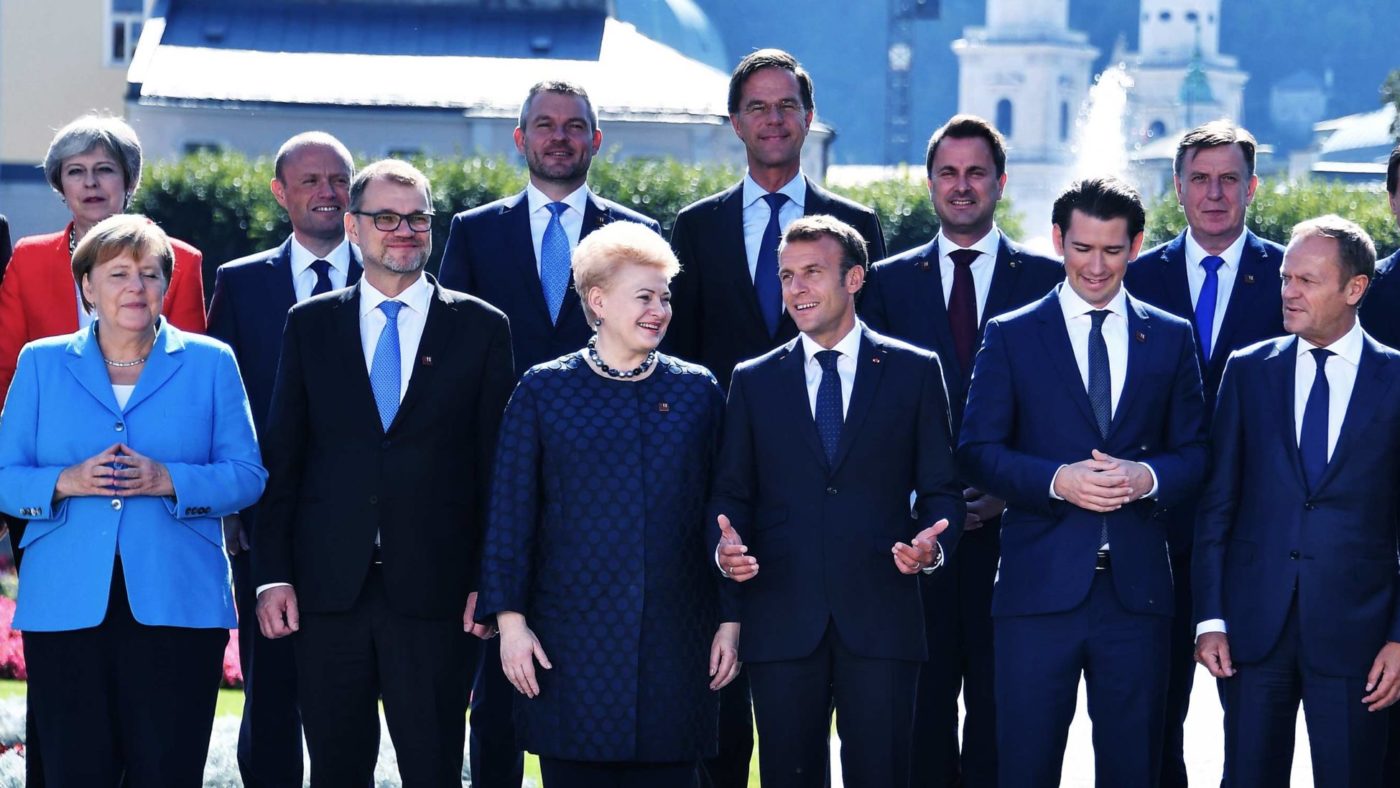Fifteen years ago this month, on May 1, 2004, the European Union welcomed eight new member states. The “Eastern Enlargement” saw Eastern European and Baltic countries join the EU. Since then, other countries further to the east like Romania and Bulgaria have also become members, while many more in the Balkans are waiting for their eventual accession (some are even ready to change their name to speed up acceptance to the club).
Today, there is little doubt that the EU is very different from the co-operative organisation born in the aftermath of World War II. For one thing it’s vastly bigger. Back in 1957, the Treaty of Rome which set up the European Economic Community was only signed by six countries. In 2019, the number of members has risen to – at least for the moment – 28.
That countries like Poland or Estonia are even part of the EU can be seen as a great success of liberal democracy, given they were stuck behind the Iron Curtain less than 30 years ago. So too has been the strengthening of institutions and access to the common market that EU membership has entailed.
Nonetheless, the gradual growth in the number of member states has had other, less positive consequences, namely an inability to react to some of the biggest and most pressing issues of our time. Instead, whenever a crisis comes up, members argue over it for months or years with little substantive action.
A one-size-fits-all approach from the Commission, along with the need to reach unanimity among member states is, after all, still the preferred path for action at a European level. However, with 28 different voices round the table, reaching unanimity has understandably become more and more difficult.
The refugee crisis of recent years is a case in point. Heads of state and EU officials have been talking about a “European solution” for many years, with very little real progress. Securing the bloc’s external borders and finding a fair but humane way to deal with a complex situation has proven out of the organisation’s reach.
Foreign policy is another example. Of course, there is a big debate over how far Brussels should supersede national governments in this area – thankfully that has meant the more swivel-eyed federalists’ plans for a European army have been swiftly rebutted by a chorus of opposing member states.
At the same time, it’s striking how member states have been unable to agree on even the smallest matters, like when the EU wanted to issue a joint statement to support Juan Guaidó as the rightful president of Venezuela – in the end Brussels decided it had no opinion on the matter, although individual governments have made their views clear.
The Commission’s one-size-fits-all solutions have alienated many countries. As Brussels, together with the infamous Franco-German engine, has pushed for ever more integration over the decades, other countries that are more sceptical about giving up their sovereignty have felt pressured towards accepting “ever closer union”.
The backlash to this over-federalisation of Europe has, of course, been most keenly felt in the UK, which has now decided to forge its own path (if its government ever actually gets round to leaving).
The debate on the future of Europe since the Brexit vote has shown just how active an issue this remains. Different visions on what the EU is supposed to do have clashed again and again. Emmanuel Macron wants a federal Europe, Matteo Salvini is sceptical of more integration (except when it’s about financing Italy’s economic extravagance), Angela Merkel wants a pragmatic EU that limits itself to what it is good at, and Dutch PM Mark Rutte wants an EU based on free trade and liberal democratic principles, similar to the Europe once envisaged by Margaret Thatcher.
Trying to reconcile all these competing, contradictory ideas is nigh on impossible.
While none of this has gone unnoticed in Brussels, the Commission’s response so far has been to double down on one-size-fits-all. By abolishing unanimity in its entirety – even on tax policy, social services, and foreign affairs – it wants to get rid of any critical views, and thus risks even more dissatisfaction by forcing members to do things they really don’t want to.
One-size-fits-all solutions have failed in the past – and they are failing Europe now. As I argue in a new report, instead of ever more centralisation, the EU should embrace the diversity and pluralism that has made the continent so successful over the last centuries and think about alternative arrangements that make more flexible cooperation between member states possible.
The EU was not supposed to become its own state, subjecting any other political units under its guise – indeed, this idea of an all-encompassing European state would be, as Mrs Thatcher said decades ago, a utopia that “never comes, because we know we should not like it if it did”.
Instead, the EU should be less a superstructure and more a forum for free and sovereign states to come together and cooperate. A more flexible system would allow mutually beneficial co-operation and promote peace, freedom, and security. That would be in stark contrast to now, where attempts to force all states to toe the Brussels line is causing ever more conflict and polarisation, leading some to give up on the project entirely.
CapX depends on the generosity of its readers. If you value what we do, please consider making a donation.


